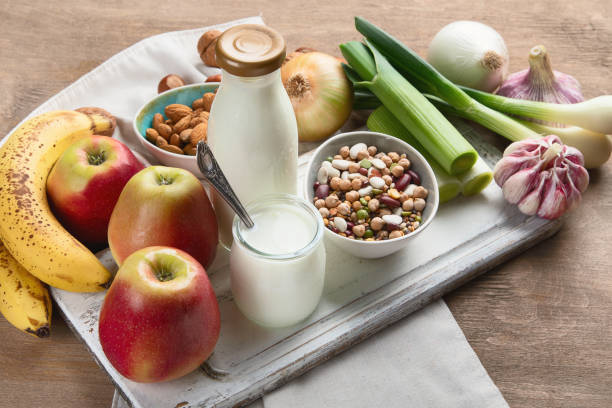Home » Acne News » Can What We Eat Really Affect Acne? Exploring the Gut-Skin Connection
Can What We Eat Really Affect Acne? Exploring the Gut-Skin Connection

Acne is one of the most common skin concerns worldwide, affecting teens, young adults, and even people well into their 30s and 40s. While we’ve long known that acne is influenced by things like oil production, clogged pores, hormones, and bacteria, there’s growing interest in another important piece of the puzzle: the connection between our gut and our skin.
Researchers are now looking closely at how what we eat — and the health of our gut microbiome — can influence skin inflammation and acne. In this blog, we’ll explore the science behind the gut-skin axis, how diet impacts acne, and practical steps you can take to support both your gut and your skin health.
What Is the Gut-Skin Axis?
The gut-skin axis is the two-way communication network between your gut and your skin. Your gut houses trillions of microorganisms, known as the gut microbiome, which play a key role in digestion, immunity, and inflammation.
When your gut bacteria are balanced, they help regulate your immune system and reduce inflammation. But when there’s an imbalance — known as gut dysbiosis — it can trigger:
Increased gut permeability (“leaky gut”)
- Activation of the immune system
- Release of inflammatory chemicals
- These changes can affect your skin’s health, potentially contributing to acne, rosacea, eczema, and other inflammatory skin conditions.
How Diet Shapes Your Skin Through the Gut
What we eat directly influences the diversity and balance of our gut bacteria — and that can impact our skin. A healthy, balanced diet helps feed beneficial microbes and produces anti-inflammatory compounds, while a poor-quality diet can trigger inflammation that may worsen acne.
The Western Diet and Acne
- The typical Western diet — high in sugar, refined carbs, saturated fats, and ultra-processed foods — has been linked to acne flare-ups. Why?
- Spikes in insulin and IGF-1: Foods high in sugar and simple carbs can raise insulin levels, which stimulate oil (sebum) production.
- Increased sebum and clogged pores: Higher oil levels can lead to blocked pores and more breakouts.
- Inflammation overload: Processed and fried foods can fuel inflammatory pathways in the body, making acne worse.
The Mediterranean Diet: A Skin-Friendly Alternative
- In contrast, the Mediterranean diet — rich in vegetables, legumes, nuts, fish, olive oil, and whole grains — has been associated with healthier skin and fewer acne lesions. This diet provides:
- Anti-inflammatory nutrients: Omega-3s from fish and antioxidants from fresh produce help calm inflammation.
- Gut-friendly fiber: Whole grains and legumes support good bacteria in the gut.
- Balanced blood sugar: Less refined sugar means fewer spikes in insulin, which may reduce breakouts.
- If you’re looking to improve your skin through diet, this eating style may be worth considering.
Probiotics, Postbiotics, and Acne: What’s the Link?
There’s increasing interest in using probiotics and postbiotics to support gut health and manage acne.
Probiotics are live “good” bacteria found in foods like yoghurt, kefir, kimchi, and supplements.
Postbiotics are beneficial compounds produced by these bacteria during fermentation, such as enzymes, peptides, and short-chain fatty acids.
Both may help your skin by:
- Supporting a healthy skin barrier
- Reducing inflammation
- Outcompeting harmful bacteria
- Boosting your skin’s natural defences
What the Research Says About Probiotics and Acne
While research is still emerging, several small clinical studies suggest that probiotics could play a role in acne management:
- Probiotics + dairy: Some studies show that fermented dairy products containing probiotics can reduce acne lesions.
- Probiotics + antibiotics: Combining probiotics with oral acne medications may improve results while protecting gut health.
- Hormonal regulation: Certain probiotic strains may help reduce IGF-1, a hormone linked to increased oil production and acne severity.
However, more large-scale studies are needed before probiotics can be recommended as a standalone acne treatment.
Gut Inflammation and Skin Health
When your gut microbiome is out of balance, it can lead to increased gut permeability — sometimes called “leaky gut.” This allows inflammatory molecules to enter your bloodstream and trigger your immune system, which can worsen skin inflammation.
For acne, this may contribute to:
- Overactive oil glands
- Increased production of inflammatory chemicals
- More clogged pores and breakouts
- In other words, calming gut inflammation may be a key step in calming acne.
Practical Nutrition Tips for Clearer Skin
While diet alone won’t “cure” acne, adopting gut-friendly eating habits can support healthier skin and complement your existing skincare routine or medical treatments.
Focus on:
- Plenty of fruits, vegetables, and whole grains
- Fiber-rich foods like legumes, oats, and chia seeds
- Healthy fats from olive oil, nuts, and omega-3-rich fish
- Fermented foods like yoghurt, kimchi, miso, and kefir
Limit or avoid:
- Sugary drinks, white bread, and refined carbs
- Highly processed foods and fast food
- Excess dairy (especially skim milk, which may worsen breakouts for some people)
Consider:
- Adding a quality probiotic supplement, especially if taking antibiotics
- Working with a dietitian for personalised recommendations
The Future of Acne Care: Personalised Nutrition
The science of the gut-skin connection is rapidly evolving, and we may soon see more personalised acne treatments based on your gut microbiome.
Future approaches could include:
- Microbiome testing to guide probiotic prescriptions
- Tailored diets based on your individual inflammatory profile
- Integrative care that combines dermatology, nutrition, and gut health support
Final Thoughts
Acne is complex, but we now know that what happens in the gut can influence what shows up on your skin. While more research is needed, there’s growing evidence that improving gut health through diet, probiotics, and lifestyle changes can play a supportive role in acne management.
Small changes — like eating more whole foods, adding probiotics, and reducing processed sugars — can help you take a more holistic approach to clear, healthy skin.
